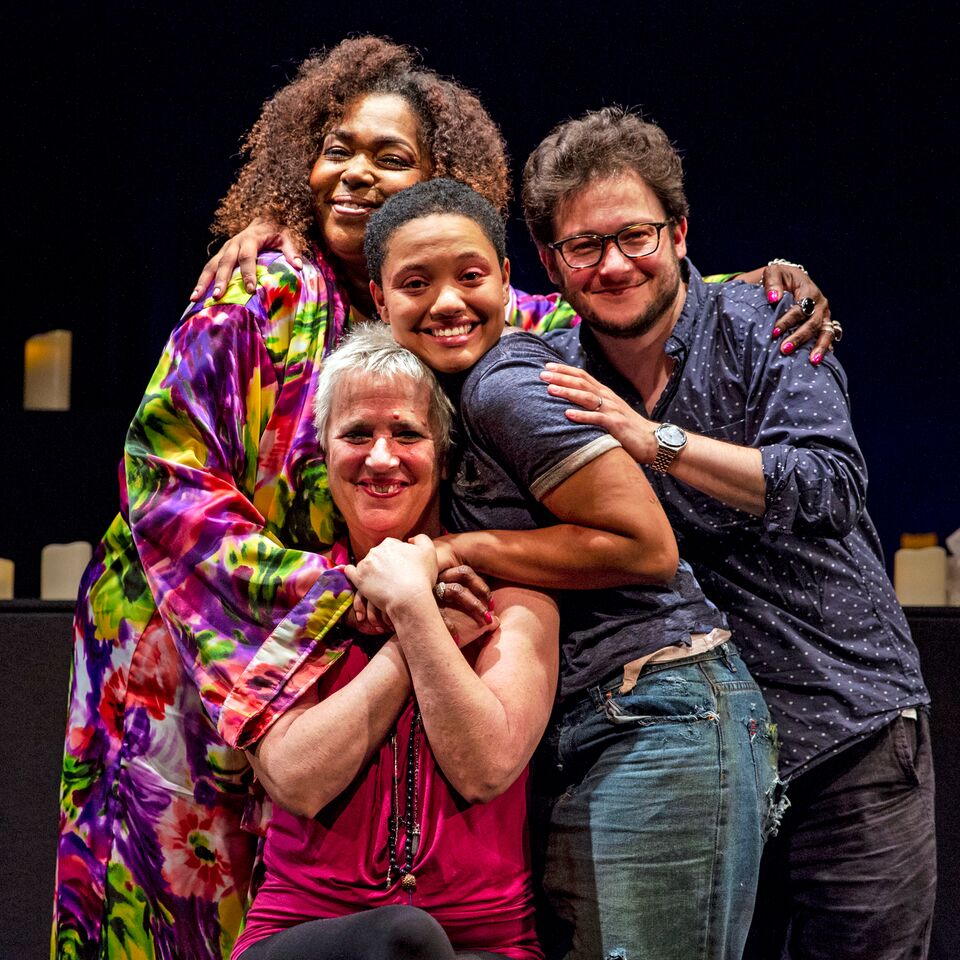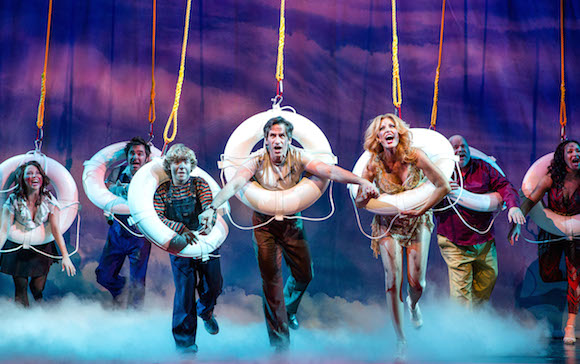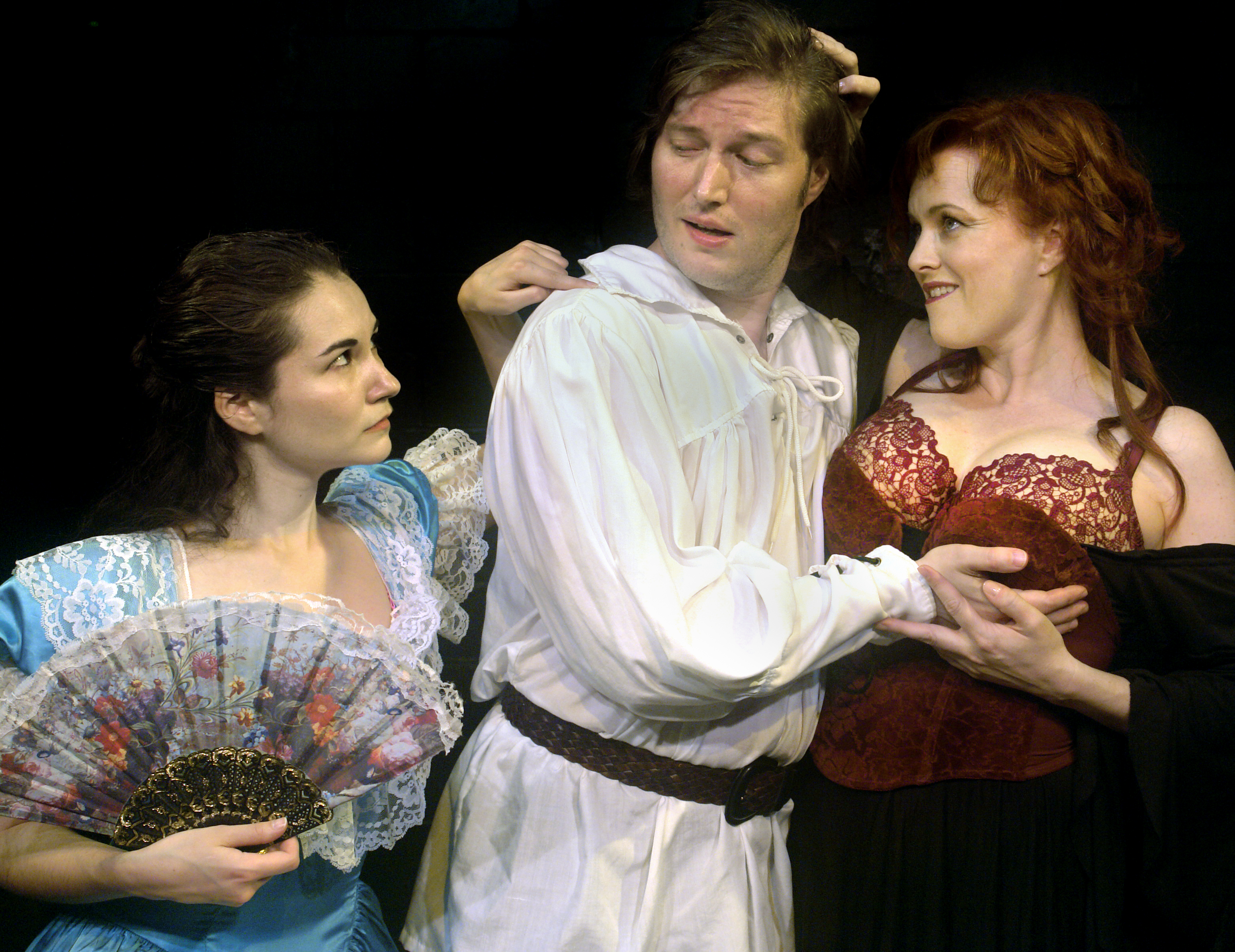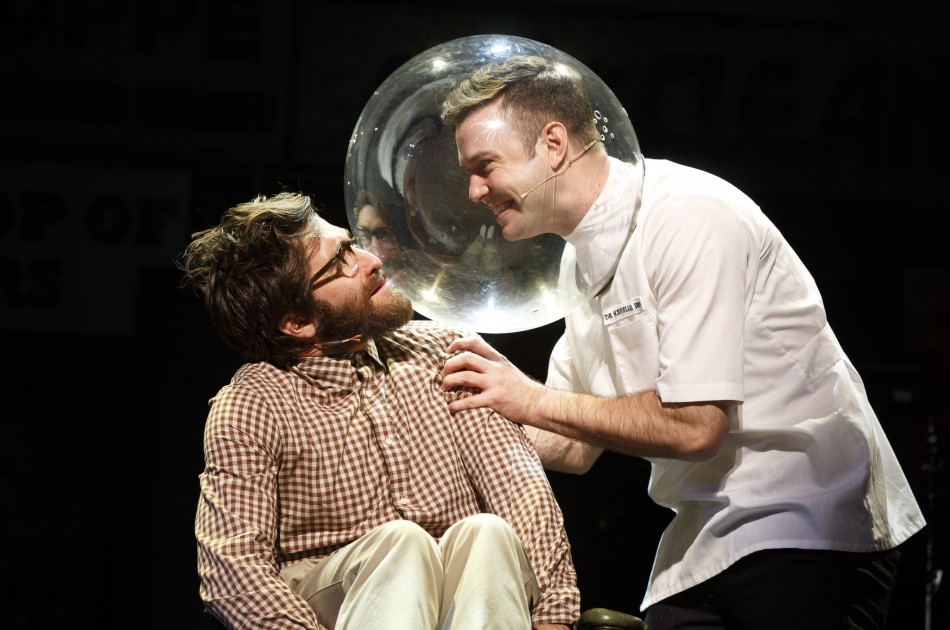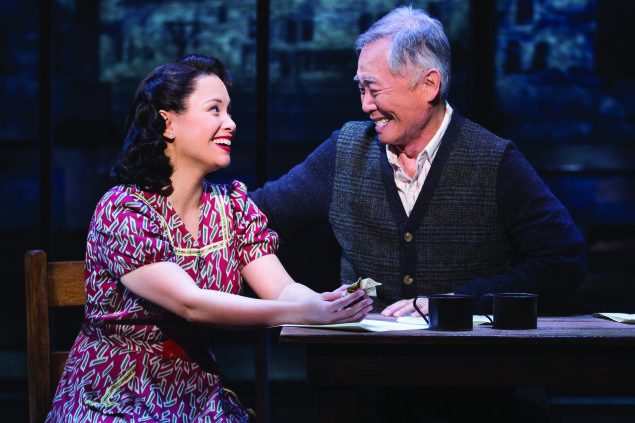Eve Ensler’s plays have a way of creating a gate to newfound emotion, far beyond the everyday
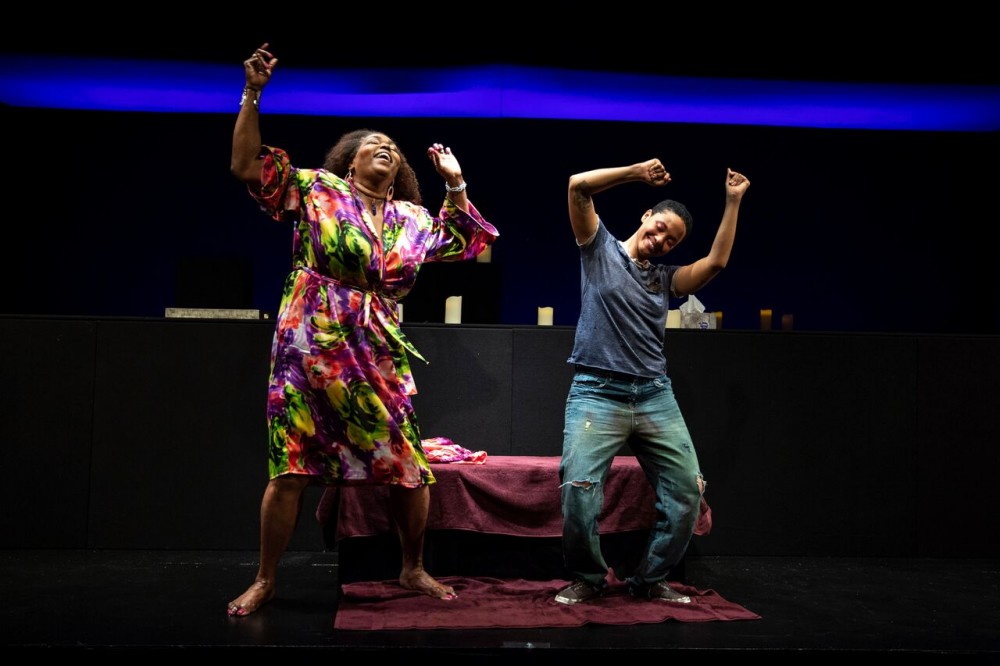
Liz Mikel, Kiersey Clemons
by Marcina Zaccaria
A recipient of the 2018 Lucille Lortel Lifetime Achievement Award, a pioneer feminist playwright (and a performer and lecturer in her own right), Ensler’s latest offering, Fruit Trilogy, at the Lucille Lortel, is presented in three parts, “Pomegranate,” “Avocado,” and “Coconut.” Varying in style and tone, the trilogy combines moments of levity with moments of fear and conviction.
In “Pomegranate,” the performers present as Items, ready for sale. Fanciful and lively, they argue from beneath their brightly colored wigs. Without extraneous movement, they deliver the text, thoughtfully and unflinchingly. Commodification and warning signs from stress are thoroughly called into question. Scenic Designer Mark Wendland (Six Degrees of Separation), Costume Designer Andrea Lauer (Bring It On, The Musical), and Lighting Designer Jeanette Oi-Suk Yew (Company XIV’s Rococo Rogue) boldly capture yellow, fuchsia, and neon that works in and out of hyper lit cubes.
The box bursts open in “Avocado.” Ensler, who founded V-Day to end violence, freely explores a darker world, offering text that repeats dynamically. Fruit Trilogy had its world premiere at the West Yorkshire Playhouse, UK with Mark Rosenblatt directing. In this production, the design team has whipped up a smattering of images in a wide rectangular space, side lit and back lit, under haze. In a courageous performance by Kiersey Clemons, who previously performed in Transparent, moments land with a definitive sense of breath. The concept of the female oppressed is juxtaposed with the object, now male, from the other side. Rocking from side to side, she takes only a moment to stand through this entire monologue. Her pants, ripped, and her t-shirt, stained and patched, give every indication of a harsh life, with time spent on the street. While her tone is confessional, her performance, at times, borders on possessed. With an emotional state often beyond desperation, cycles of horror diminish her sense of self-understanding; finding new pathways becomes the next challenge. She has to make it alone. Hitting the ceiling, damning her enclosed world, she finally breaks through to the light, after facing a father she has denounced.
In “Coconut,” it’s refreshing to find a differently inclusive narrative. Liz Mikel, who appeared in the first segment, initiates the space. Rubbing oil on to her flesh, she talks plainly about the body. Like the previous segment, the text by Eve Ensler (In the Body of the World) delves into the pain and pleasure principle, however, liberation in movement and dance persist. Beyond an altar of warm candles, her brightly colored, flowered tunic slides off. Removing her top in a perceived sauna-like place, her declaration of self-acceptance is profound and recognized. When she poses questions about the body and about theater, it feels like a space/person document previously addressed in a compendium – or at least a thesis – somewhere.
So, if you’ve been there before, get up and dance. It’s likely that freedom will reign.
Photos: Maria Baranova
Fruit Trilogy will be presented in a limited engagement run through June 23 at the Lucille Lortel Theatre, located at 121 Christopher Street in Greenwich Village. Run time: 80 minutes. Ovation Tix 212 352-3101
It is presented as part of the 25 Year Anniversary Season of the Abingdon Theatre Company.







